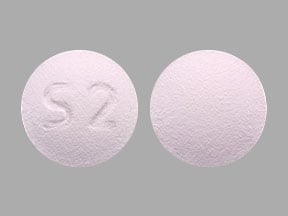
Vesicare Coupons & Savings Card – Discount Prices from $27.95
Brand for: Solifenacin
My prescription
Edit
10MG, Solifenacin (90 Tablets)
Select pharmacy

CVS
$33.05
COUPON PRICE
Walmart
$27.95
COUPON PRICE
Albertsons
$30.86
COUPON PRICE
Walgreens
$32.58
COUPON PRICEVesicare savings card
Show this card to your pharmacist
Walmart
$27.95
BIN
ID
PCN
GRP
019876
LHC40C74E2
CHIPPO
LHX
Powered by
Related muscarinic antagonists prescriptions
More prescriptions for overactive bladder
Related muscarinic antagonists prescriptions
More prescriptions for overactive bladder
Price history for Vesicare (brand) & Solifenacin (generic)
90 Tablets, 10MG
Average retail price for Vesicare
Average retail price for Solifenacin
Average SaveHealth price for Solifenacin
Our price history data is based on aggregated prescription data collected from participating pharmacies in America. Our prescription data updates daily to reflect the latest price changes. If you notice a missing data point, it means there wasn't sufficient data available to generate a monetary value for that date.
Over the last 12 months, the average discount price of Vesicare is $37.72 using the SaveHealth savings card. That's an average savings of 97.30% on Vesicare with our discount card.
*Retail prices are based on pharmacy claims data, and may not be accurate when we don't have enough claims.
Vesicare (Solifenacin) dosage forms
Dosage Quantity Price from Per unit 5MG 30 Tablets $9.04 $0.30 5MG 60 Tablets $15.57 $0.26 5MG 90 Tablets $28.61 $0.32 10MG 90 Tablets $27.95 $0.31 10MG 30 Tablets $8.82 $0.29 10MG 60 Tablets $15.14 $0.25
| Dosage | Quantity | Price from | Per unit |
|---|---|---|---|
| 5MG | 30 Tablets | $9.04 | $0.30 |
| 5MG | 60 Tablets | $15.57 | $0.26 |
| 5MG | 90 Tablets | $28.61 | $0.32 |
| 10MG | 90 Tablets | $27.95 | $0.31 |
| 10MG | 30 Tablets | $8.82 | $0.29 |
| 10MG | 60 Tablets | $15.14 | $0.25 |
What are the side effects of vesicare?
The side effects of Vesicare (solifenacin) may include dry mouth, constipation, blurred vision, urinary tract infection, and dry eyes. Some individuals may also experience dizziness, fatigue, or stomach pain. It is important to contact a healthcare provider if any side effects are severe or persistent.
What are the side effects of solifenacin in the elderly?
Solifenacin may cause several side effects in the elderly, including dry mouth, constipation, blurred vision, urinary tract infections, and dizziness. Elderly patients may also experience confusion, hallucinations, or increased risk of falls due to dizziness or blurred vision. It is important for elderly patients to be monitored closely for these side effects and to consult their healthcare provider if they experience any concerning symptoms.
How long can you stay on VESIcare?
The duration for which a patient can stay on VESIcare (solifenacin succinate) is determined by their healthcare provider based on the individual's response to the medication and their specific medical condition. It is important for patients to have regular follow-ups with their healthcare provider to assess the effectiveness and any potential side effects of the treatment. Long-term use is generally considered safe if monitored appropriately, but any concerns or side effects should be discussed with a healthcare professional.
Does VESIcare make you sleepy?
VESIcare (solifenacin) can cause drowsiness or sleepiness as a side effect in some individuals. It is important for patients to be aware of how the medication affects them, especially when engaging in activities that require alertness, such as driving. If drowsiness becomes bothersome, it is advisable to consult a healthcare provider.
Does solifenacin affect sleep?
Solifenacin is not commonly associated with affecting sleep. However, it may cause side effects such as dry mouth, constipation, and blurred vision. If a patient experiences sleep disturbances while taking solifenacin, it is advisable to consult with a healthcare provider to determine if the medication may be contributing to the issue.
